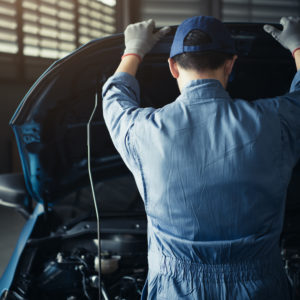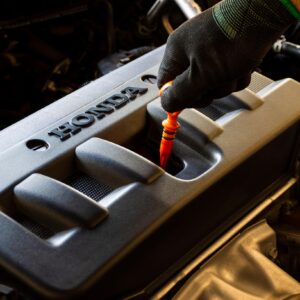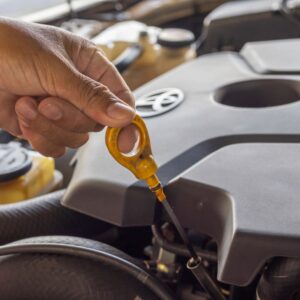Every car owner knows just how important a tune-up is, but too often, people either forget or ignore the signs when it’s finally time for one. Of course, you don’t have to be one of those people. You can be a responsible car owner by simply listening to your car when it tells you it’s time for a tune-up.
What Are the Signs That Your Car Needs a Tune-up?
Knowing when your car needs a tune-up is easier said than done, but it certainly doesn’t have to be hard. Your car will most likely show a few signs here and there to let you know it’s time for a tune-up. Here are some examples:
Illuminated Warning Lights
Are any of the warning lights on your dashboard turned on? Illuminated warning lights typically mean there’s an issue with your vehicle that requires your attention. It’s also your vehicle telling you it’s time for a tune-up to fix whatever’s tripping the warning light.

Poor Gas Mileage
Has your fuel mileage suspiciously dropped in the last few weeks? If the answer’s yes, then your car might need a tune-up. Fuel mileage typically decreases due to a dirty oxygen sensor, clogged engine air filter, or buildup on your fuel injectors.
A tune-up makes sure your fuel injection system runs correctly, which can significantly improve fuel efficiency. You can also replace any faulty parts like worn spark plugs, wires, and motor oil during a tune-up to improve your fuel economy.
Usually, a visual inspection can determine if the tune-up needs to be done. If it has a cap and rotor, look for corrosion or cracks. If so, then you will want to do a full tune-up. Inspect the spark plugs for improper wear, discoloration, and – this is a tricky thing to inspect – the gap of the spark plug.
You also have to make sure your spark plugs can be checked. On most modern spark plugs, you cannot check the gap. There is a very small almost needle-like electrode protruding out of the spark plug, and if you touch it, you will damage it. Be very careful with this. You can ruin brand-new spark plugs by checking a gap you aren’t supposed to.
Delayed Acceleration
When your engine isn’t getting enough fuel, air, or both, it won’t be able to generate enough power, causing your engine to hesitate before accelerating. This is typically caused by clogged fuel injectors, a fuel pump that needs replacing, or a damaged fuel pump. Either way, it’s a sign that your car needs a tune-up as soon as possible.
Unusual Vibrations or Shaking
Vibrations when you start your engine typically mean you have dirty filters or worn-out spark plugs.
Unusual vibrations or shaking is never a good sign, so if you suddenly notice either of these things, it’s best to tune up your car as soon as you can.
What Is a Tune-up on a Car?
As a preventive maintenance service, a car tune-up ensures that your vehicle continues to perform well. This service includes replacing parts that are prone to wear, such as the air filter, fuel filter, and oxygen sensor.
A tune-up on most modern vehicles includes spark plugs, fuel filters, and maybe spark plug wires or ignition coil boots. On older vehicles, it would be spark plugs, plug wires, cap, rotor, and fuel filters. Even older vehicles have points and condensers that require adjustment and carb adjustment.
During a tune-up, your car’s spark plugs are inspected and cleaned. Your mechanic will also perform an oil change, fix your tire rotation, and check for any other issues that might compromise your vehicle’s performance.
A tune-up on most modern vehicles includes spark plugs, the fuel filter, and maybe spark plug wires or ignition coil boots. On older vehicles, it would be spark plugs, plug wires, the cap, rotor, and fuel filters. Even older vehicles have points and condensers that require adjustment and carburetor adjustment.
–Anthony Harlin, ASE Certified Master Automobile Technician
How Often Should You Get a Tune-up?
Unfortunately, there’s no straight answer to this question. How often you need to get a tune-up is going to vary based on a lot of factors, including your vehicle’s make, model, and year.
In general, however, older vehicles typically need a tune-up every 10,000 or 20,000 miles. On the other hand, some newer vehicles can go as far as 100,000 miles before needing a tune-up.
Can You DIY a Tune-up?
If you want to do a tune-up on your car by yourself, then you’re certainly free to do so. It’s always best to go to a professional, but a car’s tune-up cost isn’t always easy on the wallet. Luckily, performing a basic tune-up doesn’t exactly require professional know-how.
Changing your car’s oil and checking on the other fluids should be easy enough, but be sure to always have your owner’s manual nearby. You’ll want to make sure you have the space and tools for this too.
To make things easier, consider getting a quality scan tool and a tune-up kit.
Any information provided on this Website is for informational purposes only and is not intended to replace consultation with a professional mechanic. The accuracy and timeliness of the information may change from the time of publication.






























